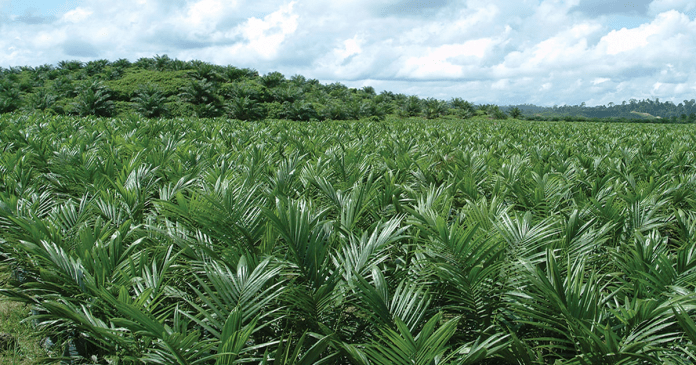Malaysia’s palm oil (PO) inventory dropped 21.1% month-on-month in March as exports jumped 31.8% MoM.
RHB Research Regional Sector Update cited today (April 11) that they expect palm oil stock levels to continue to decline in April as production may be hampered by Aidil Fitri holidays, while exports could continue to benefit from Indonesia’s export quota suspension which will last until end-April.
External factors dragged down prices
The price per tonne of CPO (third month futures) fell 19% to a low of MYR3,512 on 24 Mar in the span of three weeks, before recovering slightly to the current level of MYR3,794.
RHB believes the decline was mainly due to external circumstances, dragged down by the banking crises in the US, USD weakness, and global commodity price weakness including that of crude oil, soybean oil (SBO) and rapeseed oil.
Crude oil prices fell 13% YoY in the same period, while soybean oil and rapeseed oil prices fell by 12% and 14%. While the fears of a global recession are still intact, the US Government has been actively reassuring the public that it is safeguarding against further banking crises.
While upside risks have moderated of late, there are still supportive factors that should keep prices relatively stable. Positive factors include: weather uncertainties – as there is a risk El Nino will return in 3Q23/4Q23; the availability of fertiliser from Russia and impact of under fertilisation on crops in Malaysia due to labour shortages; China reopening; and increases in biodiesel mandates – as Indonesia has now moved to B35, and intends to move up to B40 in 2024.
Nevertheless, on issues on the sector, RHB cited that palm oil-gas oil (POGO) spread remains negative – thereby keeping discretionary biodiesel demand at bay; importers have large stockpiles of palm oil, which could impact demand in the short term; the PO-SBO price gap has narrowed, which renders PO as not as attractive as before; and the deforestation-free supply chain law in the EU could impact demand from that region from 2024 onwards.
Malaysia’s March output saw a 2.8% uptick MoM while exports jumped 31.8%, resulting in stocks falling to 1.67m tonnes (-21.1% MoM).
RHB said that Malaysian palm oil stocks may continue to decline, albeit slightly at end-April, taking into account the continued impact of Indonesia’s Domestic Market Obligation (DMO) policy and export quota suspension (which will last until end-April), while the Aidil Fitri holidays at end-April could drag the pick-up in output post wet weather season.
Still, given the time it takes for major importing countries to run down their inventories before restocking again, RHB believes a larger pick-up in demand is only likely to come in 2H23.
RHB, thus, maintains a NEUTRAL call on the sector as overall, they expect CPO prices to remain rangebound between MYR3,500-4,500 per tonne for the rest of 2023, and average MYR3,900/tonne.
RHB also said they maintained the sector call as a trading strategy. Top Picks are the integrated players: KLK, IOI, Wilmar and Golden Agri – as they perform better in a lower CPO price environment.









